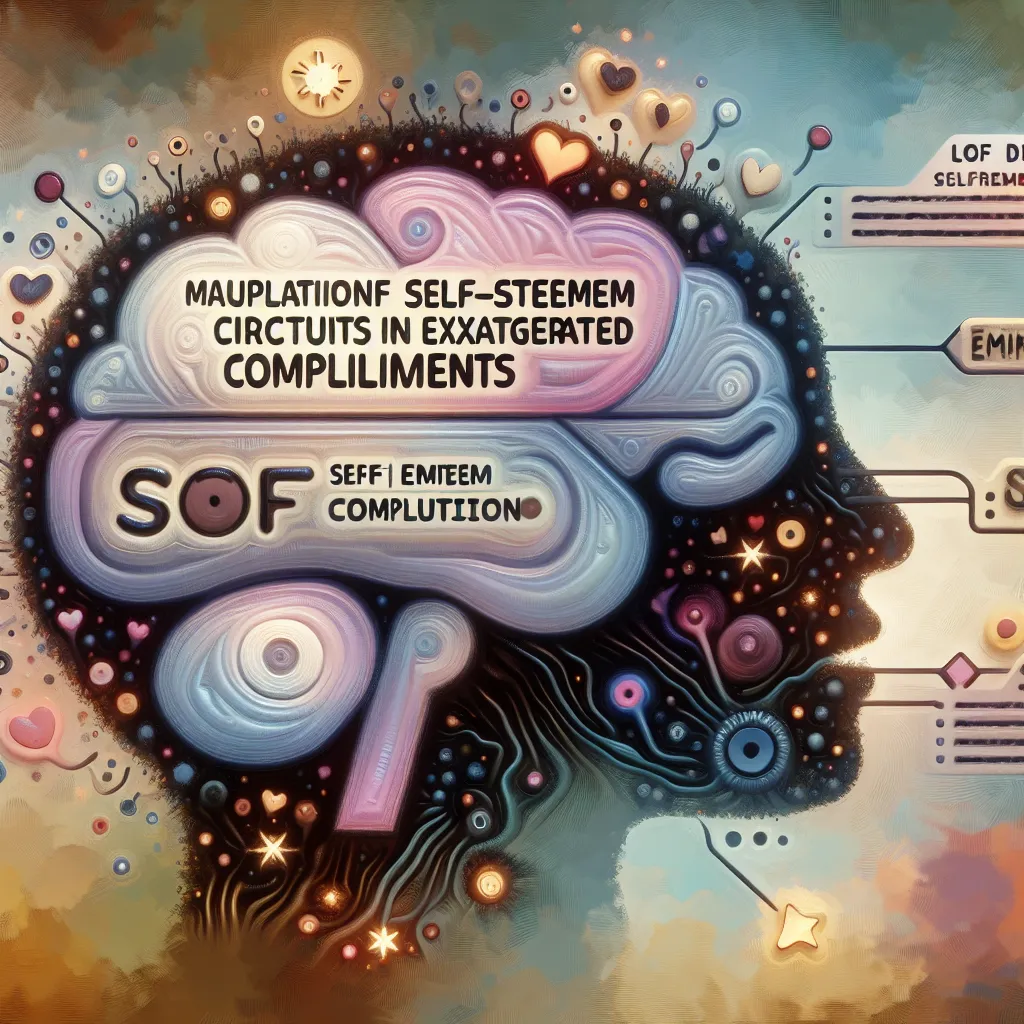Hello, relationship seekers!
Today, we’re diving deep into an important question about relationships: “How does a partner’s fake vulnerability exploit the brain’s empathy to deepen trust?”
The Direct Answer
Displaying vulnerability can undeniably deepen trust in a relationship. However, when vulnerability is feigned, it manipulates one’s empathy, tricking the brain into fostering a bond built on false pretenses. This can be harmful in the long run as it lays a shaky foundation for the relationship.
Now, let’s explore the extensive evidence and details that support this answer:
1. Understanding Vulnerability and Empathy
Vulnerability and empathy are crucial ingredients for a healthy relationship. Here’s why they matter.
A. The Role of Vulnerability in Trust Building
Vulnerability, defined as the willingness to reveal personal information or emotions, is crucial in building trust.
– Expert Perspectives: Relationship therapists like Dr. Brené Brown stress the importance of vulnerability in relationships, saying it is the birthplace of love, belonging, joy, courage, and creativity.
– Psychological Research: Studies suggest that showing vulnerability can lead to increased trust, as it demonstrates authenticity and openness.
– Real-World Examples: Consider a relationship where one party always keeps their feelings and thoughts hidden. This lack of openness can lead to a trust deficit and an emotional disconnect.
B. Empathy: The Bridge to Deeper Connection
Empathy, the ability to understand and share the feelings of others, is another key element in deepening trust.
– Historical Context: Historically, empathy has been a survival tool, fostering cooperation and understanding among individuals.
– Common Challenges: Misunderstanding or misinterpreting other’s emotions can lead to miscommunication, creating barriers in relationships.
– Practical Applications: In a relationship, empathy helps partners understand each other better, fostering a deeper emotional connection.
C. The Intersection of Vulnerability and Empathy
When vulnerability meets empathy, it can create a profound bond, as one partner’s openness is met with the other’s understanding.
– Expert Perspectives: According to Dr. Judith Orloff, empathy allows us to sense and resonate with others’ emotions, making it easier to connect with their vulnerability.
– Psychological Research: Research shows that empathy can intensify feelings of closeness and connection when met with vulnerability.
– Real-World Examples: Take, for instance, a couple where one partner opens up about a traumatic event and the other responds empathetically. This can strengthen their bond significantly.
2. The Mechanics of Fake Vulnerability
However, when vulnerability is faked, it uses empathy as a tool for manipulation.
A. What is Fake Vulnerability?
Fake vulnerability is when a person pretends to be open and emotionally available to manipulate others
1. Definition and Explanation: Fake vulnerability is essentially a facade of openness. It’s when a person pretends to be emotionally available in order to manipulate others.
2. Psychological Basis: It’s based on the idea that people are more likely to trust and connect with those who appear vulnerable.
3. Practical Implications: In a relationship, fake vulnerability can lead to trust built on false pretenses, undermining the relationship’s foundation.
B. How does Fake Vulnerability Exploit Empathy?
Fake vulnerability exploits empathy by manipulating emotions
1. Emotional Manipulation: By pretending to be vulnerable, a person can evoke feelings of compassion, sympathy, and understanding, manipulating the other’s emotions.
2. Creating False Intimacy: This manipulation can create a false sense of intimacy and connection, tricking the brain into thinking a deeper bond exists.
3. Exploiting Trust: Ultimately, this exploitation can lead to trust being built on a lie, which can damage the relationship in the long run.
C. Recognizing Fake Vulnerability
Recognizing fake vulnerability can be challenging, but it’s crucial to maintain a healthy relationship.
1. Inconsistencies: One sign of fake vulnerability is inconsistencies between a person’s words and actions.
2. Lack of Reciprocity: If a person seems overly vulnerable without allowing for reciprocation, it might be a sign of manipulation.
3. Feelings of Unease: If a person’s vulnerability makes you feel uncomfortable or pressured, it could be a red flag.
3. The Impact of Fake Vulnerability on Relationships
Understanding the impact of fake vulnerability on relationships is crucial for maintaining a healthy emotional connection.
A. Damaging Trust
Fake vulnerability can damage trust in a relationship.
– Breaking Trust: When the truth comes out, the trust built on fake vulnerability can crumble, causing significant harm to the relationship.
– Creating Resentment: The deceived partner may feel resentment and betrayal, further damaging the relationship.
– Undermining Authentic Connection: Fake vulnerability undermines the possibility of forming a genuine emotional connection.
B. Manipulating Emotions
Fake vulnerability manipulates emotions, causing psychological harm.
– Playing with Emotions: The person displaying fake vulnerability manipulates the other’s emotions to their advantage, which can be psychologically damaging.
– Creating False Bonds: Fake vulnerability can lead to the creation of false emotional bonds, which can cause emotional distress when the truth is revealed.
C. Implications for Future Relationships
The damage caused by fake vulnerability can have long-term implications for future relationships.
– Trust Issues: Once trust is broken, it can be hard to rebuild, leading to trust issues in future relationships.
– Emotional Scars: The emotional manipulation and betrayal can leave scars that affect how one approaches future relationships.
– Fear of Vulnerability: Experiencing fake vulnerability can make one wary of opening up in future relationships, hindering the formation of genuine bonds.
4. Dealing with Fake Vulnerability
Dealing with fake vulnerability requires understanding, communication, and sometimes professional help.
A. Understanding the Why
Understanding why a person might resort to fake vulnerability can help deal with the issue. This could be due to insecurity, fear of rejection, or a desire for control.
B. Open Communication
Open communication is key. If you suspect your partner of displaying fake vulnerability, it’s crucial to discuss your concerns with them in a non-confrontational manner.
C. Seeking Professional Help
In some cases, seeking professional help may be necessary. Relationship therapists can provide strategies to rebuild trust and foster genuine vulnerability.
Conclusion: The Definitive Answer
Based on all the evidence we’ve examined:
– The Role of Vulnerability and Empathy: Vulnerability and empathy play a crucial role in trust-building and forming deeper connections in relationships.
– The Mechanics of Fake Vulnerability: Fake vulnerability manipulates empathy, creating a false sense of intimacy and trust.
– The Impact of Fake Vulnerability: Fake vulnerability can damage trust, manipulate emotions, and have long-term implications for future relationships.
The final verdict is that fake vulnerability does exploit the brain’s empathy to deepen trust, but this trust is built on false pretenses and can be detrimental to the relationship.
Understanding this manipulation is crucial in the context of modern relationships. It’s a reminder of the importance of authenticity and genuine emotional connection in building and maintaining healthy relationships.



